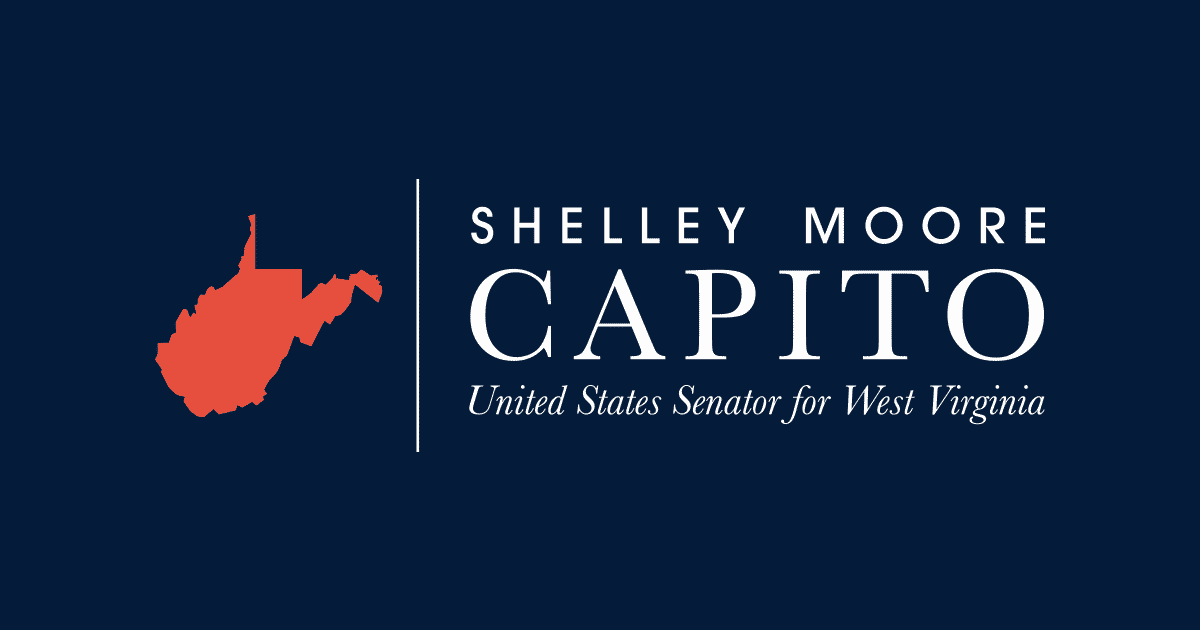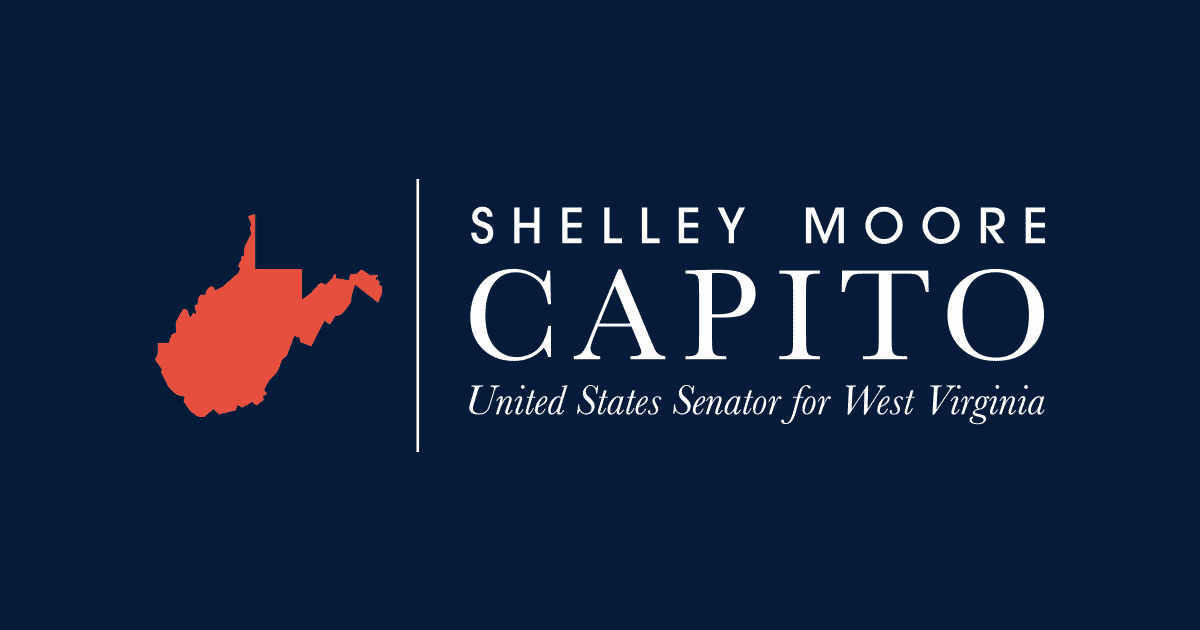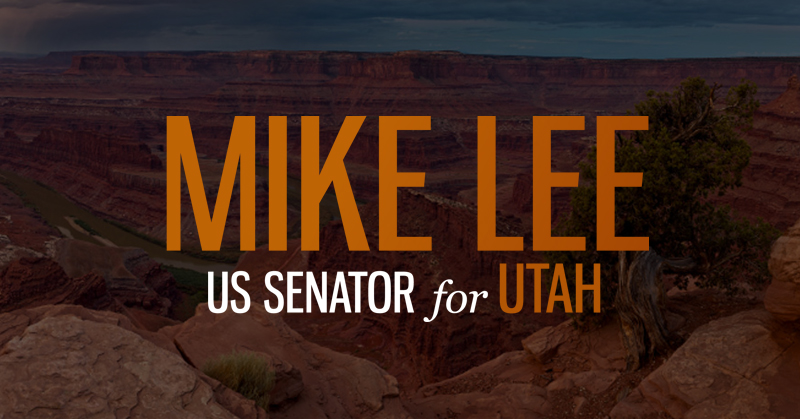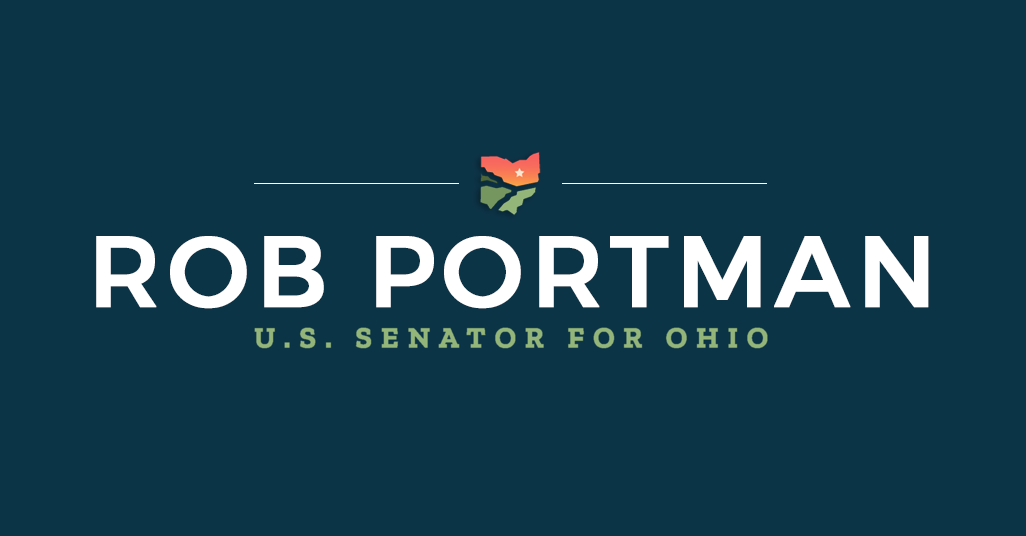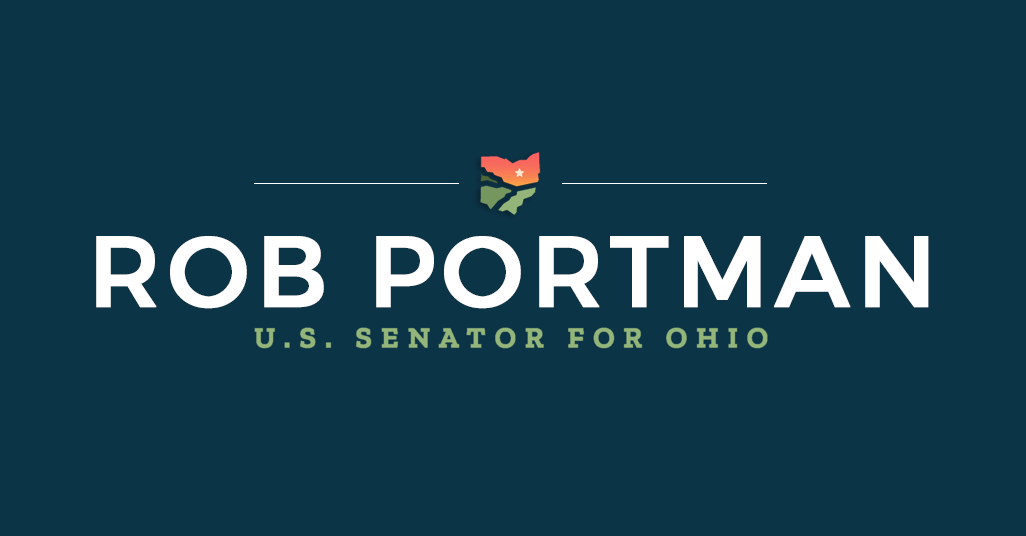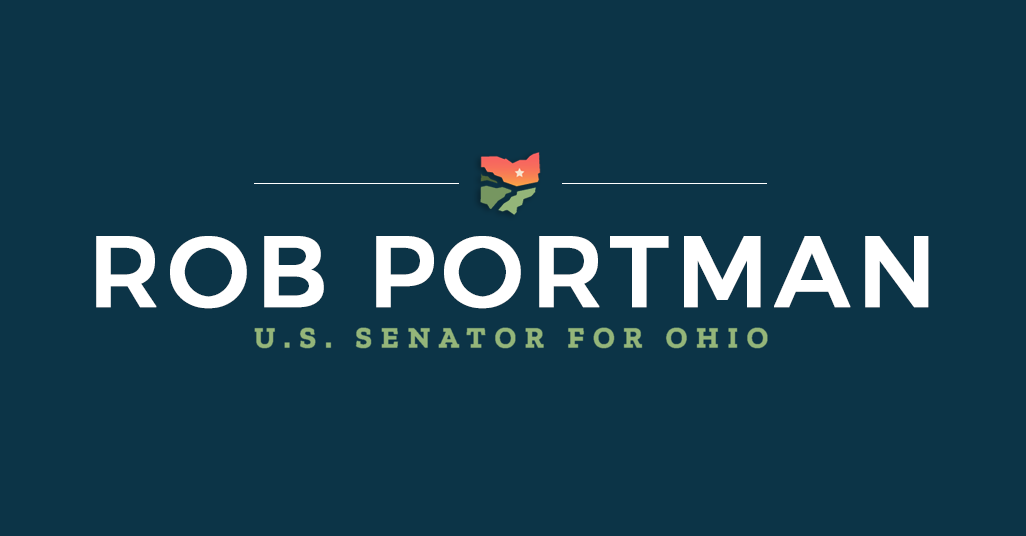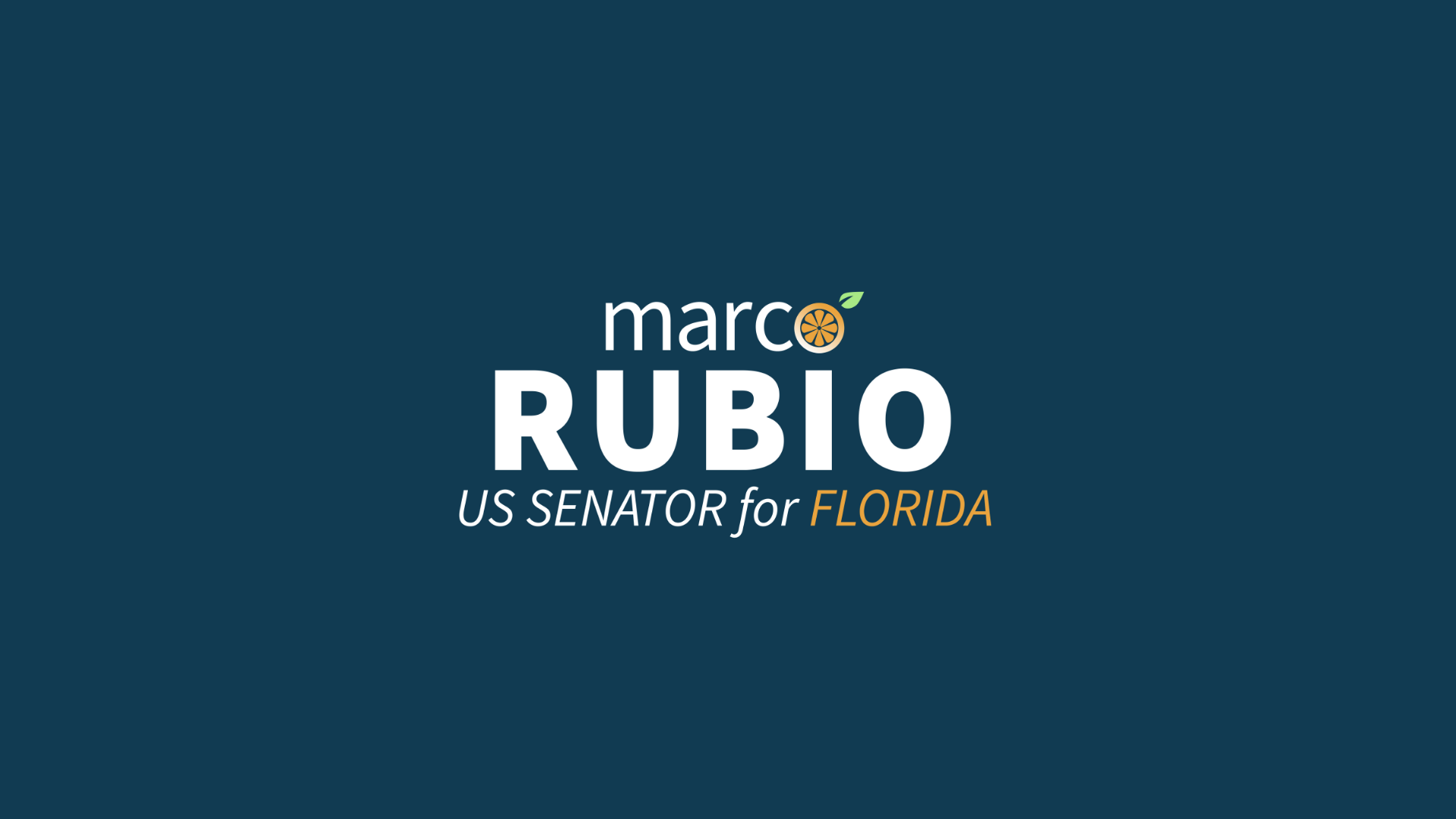Source: United States Senator for Ohio Rob Portman
June 9, 2021 | Press Releases
WASHINGTON, DC – Today on the Senate floor, U.S. Senator Rob Portman (R-OH) discussed the recently unveiled budget proposal from the Biden administration that calls for unprecedented federal spending and for allowing the 2017 tax cuts for middle class families and others to expire. Portman discussed how these tax cuts were a key driver of the pre-COVID opportunity economy, which saw strong wage growth, a 50-year low in unemployment, and the lowest poverty rate on record.
Portman urged the Biden administration to reverse course on their budget proposal, which he believes will not fuel an economic recovery and instead lead the nation further down the current path of rising inflation, labor shortages, and record deficit spending.
A transcript of his remarks can be found below and a video can be found here:
“Madam President, I’m here to join my colleague from Iowa who just spoke, and others, to talk about the president’s budget. And a budget is comprised of a couple things. One is, you know, what the spending is going to be for the country, and the spending is unbelievably high, and unprecedented levels of spending at a time of unprecedented deficits and a long-term debt that is at the highest level ever is concerning. But second, a budget’s about revenue, so on the spending side we all expected it to be a very high number – over $6 trillion in new spending – but on the tax side we also have huge new tax increases. The senator from Iowa just said it’s the largest tax increase in the history of the country – he’s the former chairman of the tax-writing committee, the chairman of the budget committee here, and he’s been through a lot of tax increases over the years and this is the largest one in the history of the country. And it’s coming at a time when you don’t want to raise taxes because we are coming out of this pandemic, trying to get the economy back on track, and one reason that we were in good shape before COVID-19 is because we actually put in place some tax reform and some tax cuts that really worked.
“And let’s be very specific about that – in the months just before COVID-19 hit we had an economy that was hitting on all cylinders in every respect. February of that year, so the February before the COVID-19 crisis hit, we had the 19th-straight month of wage growth of over three percent. That was great news in my home state of Ohio, I’ll tell you, because we’d had years of flat wage growth or even declining growth when you take into account the effects of inflation. So we had really nice wage growth, and guess who was the main beneficiary of that wage growth? It was lower and middle-income workers – which is also something that you would all think people would hope for in this chamber – and that was partly because the tax cuts that government put in place in 2018, from the 2017 Republican bill, provided tax relief to middle-class families, doubled the standard deduction, doubled the child tax credit, lowered the tax rates, put more money into people’s pockets, and the 2017 reforms also spurred needed investment in our communities, growing economic opportunities, particularly in low-income neighborhoods, and the reforms on the corporate side – on the international side and the corporate side generally – meant that more companies were investing in America, creating more jobs and investment here rather than overseas.
“At the time the Congressional Budget Office did an analysis of the lower corporate rate, as an example, and said 70 percent of that benefit was going go to workers in terms of their wages and salaries. Well that’s exactly what we saw. So again, 19 straight months of wage growth of over three percent in February before COVID hit. By the way, also in that time period, the year before COVID hit we had the lowest poverty rate in the history of the country. Let me repeat that, because I think it would be surprising a lot of people to hear this who are so critical of the tax reforms in 2017 on the other side of the aisle saying this is not going to help ordinary people. Of course it did! We already talked about the wage growth, but also the lowest poverty rate in the history of our country. We also saw a 50-year low in unemployment. We saw record low unemployment among certain groups of Americans, including Hispanics, Blacks, Asian Americans. We also saw a situation where there were a lot of jobs being created that were higher wage jobs because wages were going up, and we had the kind of opportunity economy that everybody in this chamber should hope for.
“So what does this budget say? This is the budget, again, that President Biden has just put out. He has said, ‘Let’s get rid of all that tax reform and those tax cuts.’ Virtually every one of the 2017 tax cuts expires under his budget or is ended now, before it would normally expire. Let me repeat that: the budget that they put out wants to increase taxes. And that includes taxes on everybody, including the middle class.
“In only a few months in office the Biden administration is committed to spending about $6 trillion, and again, just to put this in context, that’s bigger than the annual budget of the United States. So when you add up all the plans the president has put out there, it’s $6 trillion in new spending. One of the problems with that has been that it has primed the pump – in other words, put so much stimulus into the economy that it has created inflation and that’s something that was warned, by Republicans, including me and others – but also Democrats, like Larry Summers who’s a Democrat, he’s an economist, he’s a former Secretary of the Treasury – and unfortunately, it looks like that prediction was correct, because inflation is up. And if you ask folks back home about it they will say, ‘Yeah, I went to the gas pump and it was $3.50 a gallon.’ That’s what I heard last weekend. That’s what I experienced myself. But also it’s the price of food, certainly the price of materials. If you’re trying to build something today and you want to buy some plywood, good luck. The costs have skyrocketed.
“So this inflation is real and it’s happening and people are feeling it. And in a way, that’s a hidden tax, isn’t it? Because if everything costs more it’s sort of a regressive tax that’s built into the system, and that’s what’s happening when we have inflation. We’re also seeing pressure on interest rates, of course, which is going to make it harder for people to buy a home, buy a car, to be able to get by. So this $6 trillion has made a difference in the sense of sending a message out from the Democrats we’d like to spend much more, but they already did spend quite a bit that has primed the pump – $1.9 trillion in the COVID package, as an example.
“By the way, that $6 trillion? When you add it up, that’s about six times more than the government spent in response to the Great Depression, and that’s adjusted for inflation. I’m talking about in inflation-adjusted terms, it’s about six times more than the government spent in the 1930s in the Great Depression. It’s a very radical budget, really, both on the spending side and on the tax side.
“The philosophy of more and more spending at a time of record debt and record deficits isn’t going to help our economy recover. I think it’s simply going to continue to drive inflation, as we talked about, put pressure on interest rates, keep people out of jobs, and put more financial pressure on everyday Americans. Instead what we ought to do is help people get back to work. COVID-19, thank God, is finally passing. In my own state of Ohio we are finally opening up again because our COVID-19 rates are so low. The vaccinations are working, and I encourage people who haven’t been vaccinated to step forward and do it, because it helps you and your family, but also our communities to be able to recover more quickly – get people back to work, back to school, get our children back to school, get back to our churches and our synagogues, you know, get back to our normal life. It’s starting to happen and it’s exciting.
“One of the problems is, again, higher inflation, higher interest rates, and also, there just aren’t adequate workers out there in part because the government is paying more and more for unemployment insurance, a $300 federal supplement on top of the normal unemployment in the state. There’s still 25 states who have that and this means that people often are making more on unemployment than they would be at work. On average about 42 percent of people with the additional $300 are making more unemployment than they were at work, so that creates a little disincentive. There are other disincentives, too, out there to go back to work, and as a result there are 9.3 million jobs open in America. That’s the latest figures from the Department of Labor. That’s based on the April numbers – we don’t have the May numbers yet – but 9.3 million. That is a record number of job openings in America. We’ve never had this many jobs open. So this is a problem, because if you don’t get people back to work and filling these jobs, some of these companies are going to downsize, some will leave our shores for elsewhere where they can find workers. Others, frankly, are automating. Now, you could argue that may be a more efficient economic decision, but I don’t like to see that. I don’t like to see that. I mean, I think the technology and the automation where appropriate is great, but I want to see people getting jobs where they get the dignity and self-respect that comes from working, and they get the opportunity to have a fulfilling life with work.
“9.3 million jobs are open. Let’s fill those jobs. Let’s not do this incredibly high spending level that’s talked about in this budget. Let’s not raise these taxes at a time when we’re finally seeing economy start to rebound after COVID-19. Let’s get back on track. We had a great economy, an opportunity economy, before COVID-19 – that’s what we want to return to.”
###
